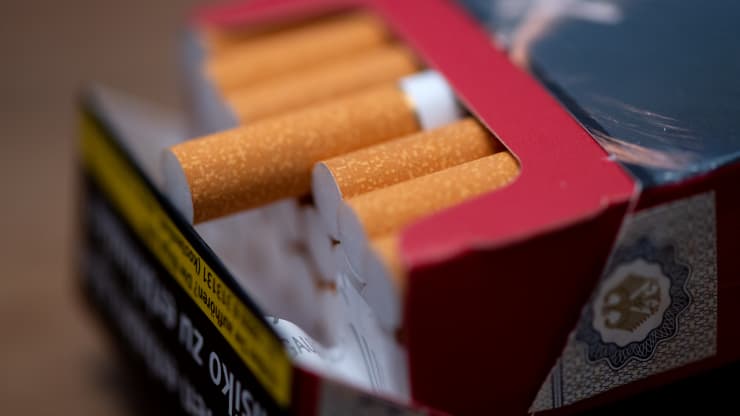
Sven Hoppe | picture alliance via Getty Images
New Zealand on Thursday announced plans to prevent young people from ever being able to buy cigarettes as part of an initiative to make the country entirely smoke-free by 2025.
The measures will mean that anyone born after 2008 will not be able to purchase cigarettes or tobacco products in their lifetime, while the level of nicotine in cigarettes available to older people will be reduced.
The number of retailers able to sell cigarettes could also be cut substantially, officials said. The legislation is expected to be enacted next year.
Health officials and campaign groups have welcomed the move, recognizing the proposed reforms as one of the world’s toughest crackdowns on the tobacco industry.
Read more: IMF chief says Omicron could dent global economic growth
New Zealand already requires plain packaging and has high taxes on cigarettes, but the health ministry says more action is required if it is to reach the goal of making the country smoke-free.
“This is a historic day for the health of our people,” Dr. Ayesha Verrall, associate health minister, said in a statement.
“We want to make sure young people never start smoking so we will make it an offense to sell or supply smoked tobacco products to new cohorts of youth. People aged 14 when the law comes into effect will never be able to legally purchase tobacco.”
Verrall said smoking is the leading cause of preventable death in New Zealand and causes one in four cancers in its population of roughly 5 million. The health ministry said smoking-related harm was particularly prevalent in Maori, Pacific and low-income communities.
‘A long slog’
The government’s smoke-free goal, first introduced in 2011, is to ensure that the national smoking rate is reduced to less than 5% by 2025 — before eventually eliminating smoking altogether. At present, around 13% of adults smoke nationwide, down from 18% almost a decade ago.
However, the current smoking rate among the indigenous Maori population stands at 31%, much higher than the national average.
“It’s been a long slog, but it actually now looks like we will achieve the Smokefree 2025 goal,” said Robert Beaglehole, chairman and founder of the campaign group, ASH.
Read more: IMF: Poor nations could face ‘economic collapse’ unless G20 extends debt relief
“This collection of complementary measures will be the envy of countries struggling to combat the death and misery caused by smoked tobacco. We will lead the world in tobacco control,” he added.
The World Health Organization describes the tobacco epidemic as “one of the biggest public health threats the world has ever faced.” It says smoking, including second-hand, kills more than 8 million people per year.
More than 80% of the world’s estimated 1.3 billion tobacco users live in low- and middle-income countries, where the burden of tobacco-related illness and death is heaviest.

